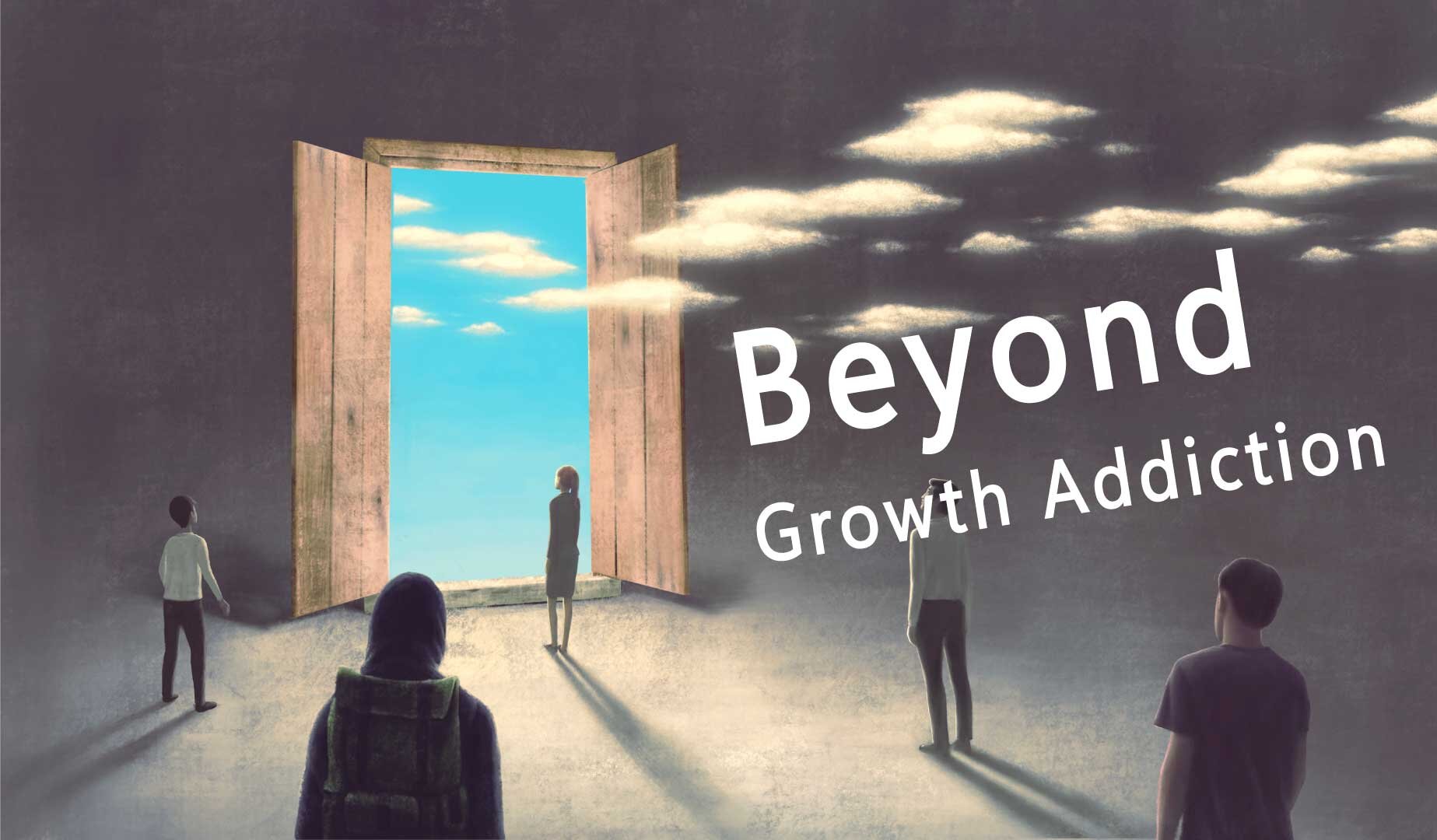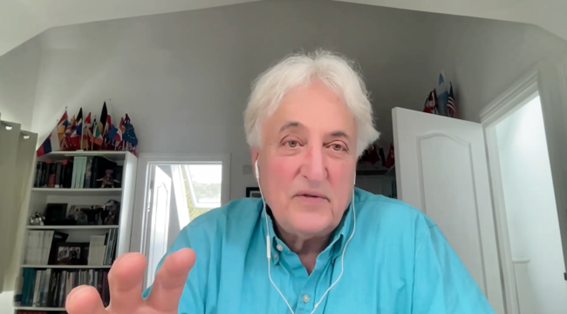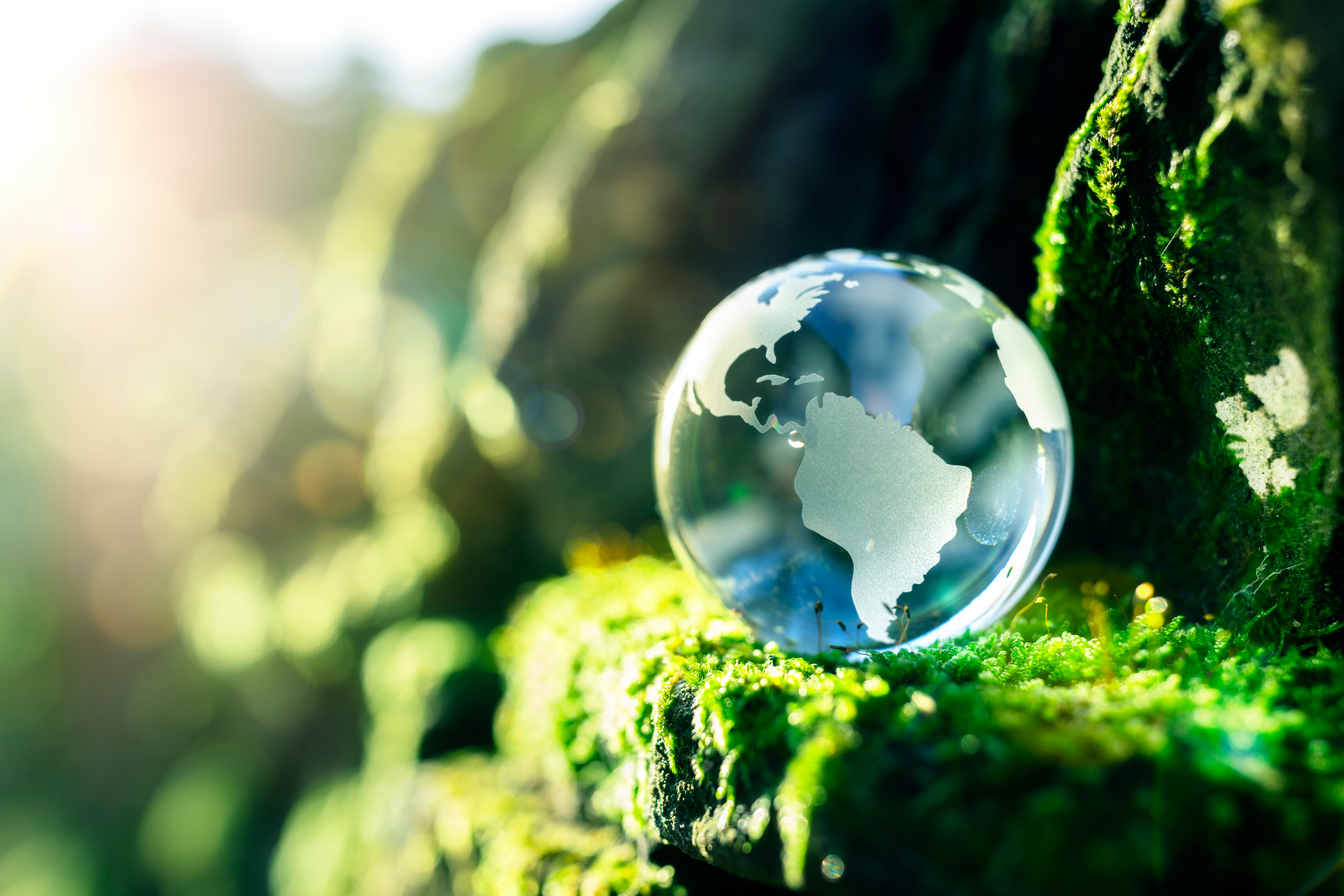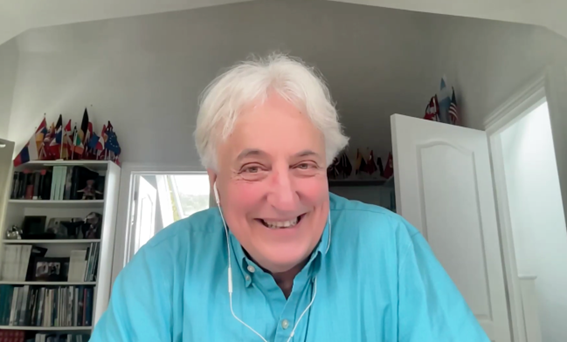af Magazine
~The Asahi Glass Foundation’s web magazine on the global environment~


Beyond GDP: Recognizing the US$125 Trillion Value of Global Ecosystems

Professor Robert Costanza, a pioneer in the field of ecological economics, recognized the threat modern economic systems pose to Earth's ecosystem, which has evolved over millions of years. He has since made significant policy recommendations for achieving a sustainable society.
In 2014, Professor Costanza's research found that the global value of ecosystem services (the benefits humans receive from ecosystems) was about staggering US$125 trillion annually (when adjusted to the 2007 US dollar value).
In this interview, we explore Professor Costanza's solutions, developed by his groundbreaking research and extensive experience. We will discuss how to nurture ecosystem services, which have been overlooked in our "growth-oriented" society, for the future and realize a well-being society.

Our lives are sustained by the various blessings nature (biodiversity) provides, such as food, water, supply of raw materials, and climate regulation. These natural resources and ecosystem functions that benefit mankind are called "ecosystem services" and are classified into four categories:
Combining these ecosystem services with economics is the work of Robert Costanza, an ecological economist and one of the recipients of the 2024 Blue Planet Prize.
Costanza reflects on his reasons for focusing on ecological economics:
"Ecosystem services contribute to human well-being both directly and indirectly. They represent a portion of the overall economic value of the planet.
However, when I began, they were not quantified in terms of economic impact and neglected in policymaking.
I thought if this disregard continues, it could jeopardize the sustainability of humanity.
I realized that the existing academic disciplines, economics, ecology, psychology, and others, were not sufficient to address this issue independently. Therefore, I came to understand a trans-disciplinary approach was necessary."

Even before the adoption of the Convention on Biological Diversity (CBD) in 1992, Robert Costanza, along with Herman Daly, one of the 2014 the Blue Planet Prize laureates, established the International Society for Ecological Economics (ISEE) in 1989 and Robert Costanza served as its first president. They laid the foundation for "ecological economics," which recognizes that the economy is embedded in society and a finite biosphere.
In 1997, Costanza and his colleagues published the landmark paper "The Value of the world's ecosystem services and natural capital" in the prestigious British scientific journal Nature.
In this paper, they undertook the first-ever systematic assessment of the global value of ecosystem services, revealing that these services combined were estimated to contribute US$33 trillion per year in 1995 (equivalent to US$46 trillion in 2007) - a figure that surpassed the global GDP at the time.
This study brought to light the immense economic value of ecosystem services, which had previously been largely overlooked and underappreciated.
In 2014, Costanza and his team revisited their earlier assessment of ecosystem value, using newer data for 2011. Their refined analysis revealed an even higher than estimated value for ecosystem services, reaching an astounding US$125 trillion per year (in 2007 US dollars).
"While the loss was particularly pronounced between 1997 and 2011, we believe that ecosystem services have stabilized to some extent since 2011.
In December 2022, the 15th Conference of the Parties (COP15) to the Convention on Biological Diversity (CBD) adopted the ambitious "Kunming-Montreal Global Biodiversity Framework for 2030," which includes the target of conserving at least 30% of the world's land and sea by 2030.
In addition, some countries, including China, are working to protect wetlands. These efforts, along with other factors, have accelerated efforts to restore ecosystems, particularly in recent years."
Costanza observes that these efforts hold promise for the future.

Shutterstock / R.M. Nunes
Preserving ecosystem services requires action from nations, businesses, and individuals.
Costanza sounds the alarm, declaring that "what we need now is to break free from our addiction to growth."
This uneconomic growth comes with a host of side effects, including the loss of ecosystem services.
"We need to move beyond our past addiction to growth.To do that, we should move beyond focusing on GDP and instead aim for a broader set of well-being indicators." Costanza asserts.
"While GDP is a common indicator of a country's wealth, it was not designed to measure societal well-being."
Costanza suggests transitioning to alternative metrics like the Genuine Progress Indicator (GPI) or the Happy Planet Index (HPI), which are specifically designed for measurement of well-being.
"The United Nations and the World Bank are also considering new indicators," he explains, "and we need to continue exploring better indicators and build the broad consensus needed to overcome the single-minded use of GDP."

Shutterstock / Song_about_summer
"Adopting GPI or other more comprehensive indicators could also help change policies that fail to address climate change or hinder the transition to renewable energy," Costanza believes.
"Transforming society for the better is the ultimate goal of ecological economics.
By recognizing the value of ecosystem services and their contribution to the economy, and social well-being, and understanding what is needed, we can overcome our current "growth addiction" and achieve a sustainable and desirable future."
What we need is a shift towards societal well-being, more broadly defined.
"Our society has become overly materialistic," Costanza argues.
"Wouldn't it be enough to have just what you need? We should move away from a situation where some people have too much, and if they do, we should redistribute it fairly.
We need to let go of our individual desire for more. After all, the Earth has its limits."
A society in harmony with people and the environment requires a deep understanding of natural capital and the services ecosystems provide.
Ecological economics plays a vital role in this endeavor, as evidenced by Professor Costanza's Blue Planet Prize. This recognition highlights the importance of this field.
"I am extremely honored to join the ranks of previous laureates, including Professor Herman Daly, who are all exceptional professionals in their respective fields.
I hope that this award will bring even more attention to ecological economics and ecosystem services, and that it will contribute to the creation of a better society," Costanza said.

Costanza also reveals his plans for future research, particularly exploring whether people are open to embracing a sustainable and well-being-centered future, as an alternative to our current growth addiction.
"We conducted a survey in Australia, presenting four future scenarios and soliciting a response," he explains.
"I would like to expand this research globally to gather feedback from the general public. Many people are unaware that there are alternative futures possible beyond a mere extension of the present trajectory. I believe that by presenting these possibilities, we can assess public awareness and stimulate discussions.
Ultimately, I hope this will inspire more people to actively engage in the preservation of ecosystem services and building a well-being focused society."
As evidenced by the adoption of the Convention on Biological Diversity (CBD) in 1992, the Millennium Ecosystem Assessment (MA) conducted from 2001 to 2005, and the establishment of the Task Force on Nature-related Financial Disclosures (TNFD) in 2021, there is a growing movement to consider ecosystem services as resources that belong to everyone (common pool resources) and should be managed for the benefit of all as public holdings. This shift would allow for their management as new shared common assets.
However, despite a growing movement, there are still many challenges to address. Costanza's words serve as a wake-up call to the dangers of a future driven by our addiction to growth, and offer valuable insights into achieving a sustainable future while we still have time to choose. Our future depends on the choices and actions of not only nations and businesses, but each and every one of us.
***
*The commemorative lectures by the 2024 Blue Planet Prize laureates, including Professor Costanza, will be held on Thursday, October 24, 2024 at the University of Tokyo and on Saturday, October 26, 2024 at the University of Kyoto. A detailed lecture program will be released on the Asahi Glass Foundation website in August 2024, and registration for participation will begin at that time.
***
This article is a translation of an article published on Business Insider Japan.
Please click here for information about the Blue Planet Prize.

